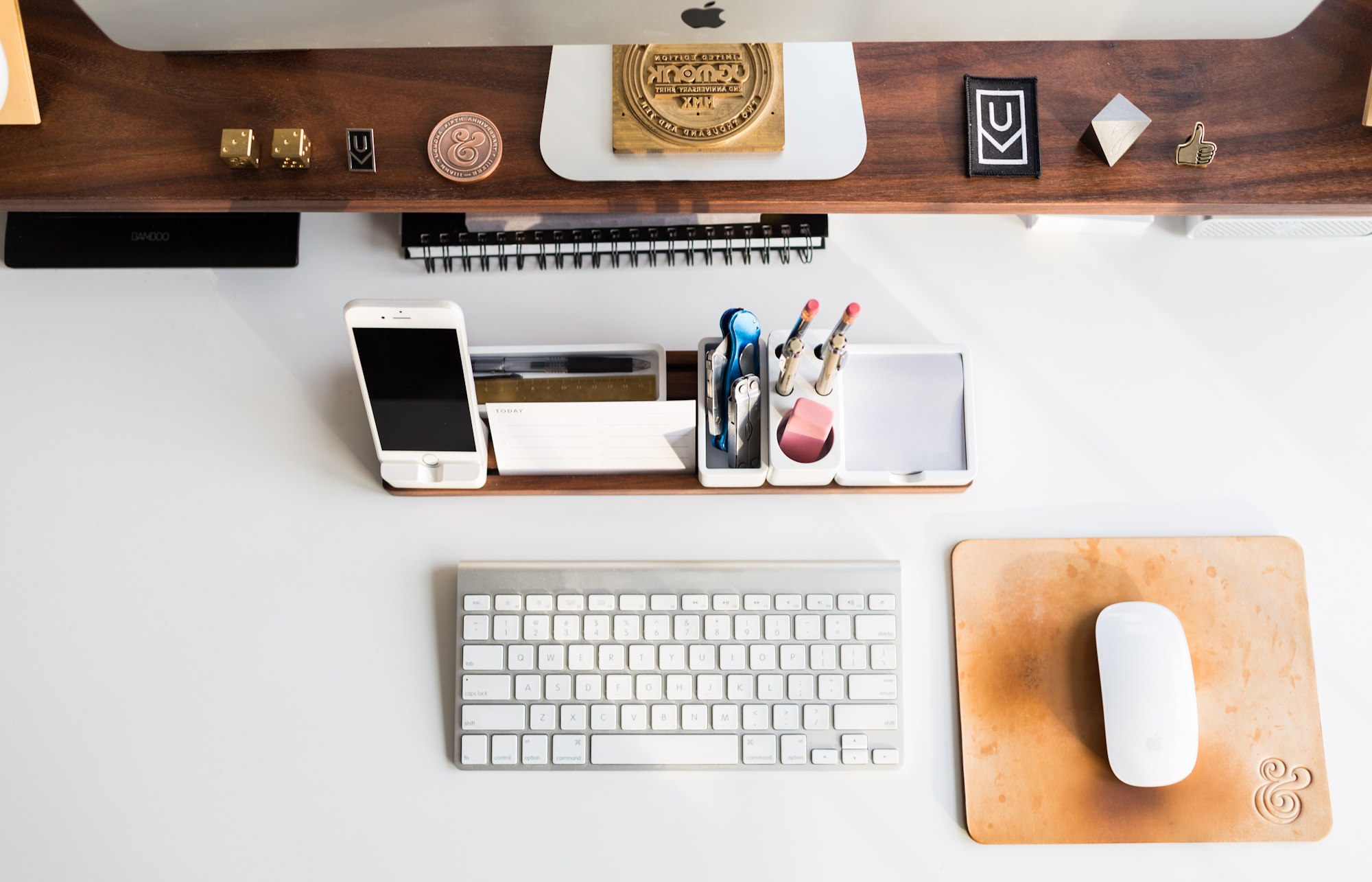Creating a Productive Study Environment: The Role of a Clean and Organised Space
Your environment plays a crucial role in your ability to focus and be productive, especially in the context of studying. As approach, having a clean and organised space becomes more than just a preference; it's a necessity for optimal focus and learning. This article delves into five essential tips for creating a study environment that fosters productivity and helps you prepare effectively for exam season.
1. Get Rid of Unnecessary Clutter
A well-known adage says, "A tidy home leads to a tidy mind," and this couldn't be truer for your study space. Clutter is not just physical; it clutters your mind as well. A study by Princeton University found that clutter competes for your attention, resulting in decreased performance and increased stress. Start each study session by clearing your desk and surrounding area of non-essential items. This practice not only gives you room to spread out your materials but also minimises distractions, allowing you to focus better.
2. Organise Your Study Materials
You can be up to 500% more productive when you are in a flow state, which is where you're completely absorbed in the task at hand. This level of deep concentration is crucial for effective studying. To facilitate entering this state, it's essential to have all your study resources and equipment readily accessible. This prevents the disruption of having to search for items mid-study. Organise loose sheets of paper in folders, keep your stationery in a pencil case, and designate specific spots for your books and textbooks. Knowing exactly where everything is when you need it streamlines your study process, reducing stress and allowing you to focus intensely on your studies. This kind of organisation not only aids in maintaining a tidy study area but also sets the stage for a highly productive learning environment.

3. Optimise Natural Light
Numerous studies have highlighted the importance of natural light for cognitive function and general well-being. Natural light boosts vitamin D, improves mood, and enhances productivity. A study conducted at the University of Illinois found that exposure to natural light improves academic performance. Ensure your study area maximises natural light. Keep windows clean and unobstructed to allow as much light in as possible. This not only reduces eye strain but also keeps you more alert and focused.
4.Surround Yourself with Inspiration
Your environment should reflect your goals and aspirations. For example, if you’re studying business you might make sure your bookcase contains autobiographies from successful leaders in the business world. If you’re studying film and media, you might put your favourite movie posters on the walls This personalised touch doesn’t just make the space more pleasant; it can also serve as a visual reminder of your long-term goals, keeping you motivated during long study sessions.

5. Tidy up at the end of each study session
The end of a study session can often leave you drained, but taking a few minutes to tidy up can make a world of difference. Studies suggest that students who worked in a neat workspace were able to work steadily for 7.5 minutes longer than those in a cluttered workspace. This extra effort ensures that your study area is ready and welcoming for your next session, reducing procrastination and improving your overall efficiency.
Additional Tips for a Productive Study Environment
- Control Noise Levels: Noise can be a significant distraction. Consider noise-cancelling headphones or soft background music to mitigate unwanted noise.
- Regulate Temperature: Being too cold or too hot can affect concentration. Aim for a comfortable temperature in your study space.
- Incorporate Greenery: Plants not only improve air quality but also have been found to enhance concentration and reduce stress. A study by the Royal College of Agriculture in England noted that students demonstrate 70% greater attentiveness when they're taught in rooms containing plants.
- Personalise Your Space: Personal touches like photographs, artwork, or a favourite mug can make your study space feel comfortable and uniquely yours, fostering a sense of ease and belonging.
- Stay Hydrated and Snack Smart: Keep water nearby and choose healthy snacks like fruits or nuts. Staying hydrated and having nutritious snacks can help maintain energy levels and concentration.
Conclusion
In conclusion, the significance of a well-organised and thoughtfully curated study environment cannot be overstated. It's not merely about aesthetics; it's about creating a space that resonates with your study habits and enhances your ability to concentrate, retain information, and remain motivated. The tips provided in this article are not just theoretical; they are backed by research and practical experience, demonstrating their effectiveness in creating an optimal learning environment.
As you prepare for exams or tackle challenging academic work, remember that your environment is a key player in your success. By eliminating clutter, organising your materials, optimising natural light, surrounding yourself with inspiration, and maintaining tidiness, you lay the groundwork for a productive and focused study experience. Moreover, by controlling noise levels, regulating temperature, incorporating greenery, personalising your space, and staying hydrated with smart snacking, you further enhance your ability to study effectively.
Ultimately, the goal is to transform your study area into a sanctuary of learning, where every element is in place to support your academic journey. This strategic approach to organising your study environment can lead to improved concentration, greater academic achievements, and a more enjoyable and fruitful learning experience. Remember, a little effort in optimising your study space can lead to significant improvements in both your academic performance and your overall well-being.
